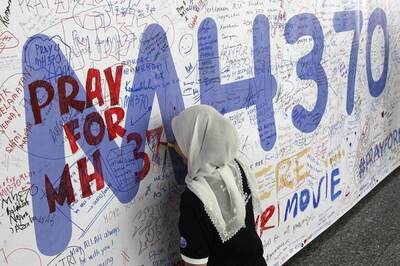
views
Karachi: It took rickshaw driver Mohammad Rasheed a year to save 300 rupees to buy his daughter a bike, so when he found three billion rupees ($22.5 million) had passed through an unused bank account in his name, he was stunned ... and scared.
"I started sweating and shivering," said the 43-year-old — just the latest victim of a money laundering scheme that Pakistan's new prime minister, Imran Khan, has vowed to crush.
When he got a call from the Federal Investigation Agency, Rasheed's first inclination was to go into hiding, but friends and family members finally convinced him to cooperate with officials. His case mirrors dozens of similar stories in recent weeks that have filled newspapers in Pakistan and riled a populace long accustomed to extravagant tales of corruption and theft.
The incidents follow a similar arc — bank accounts in poor residents' names are flooded with cash, then suddenly emptied in a laundering scheme that has likely seen hundreds of millions of dollars moved out of the country.
Rasheed's name was eventually cleared, but his anxiety remained. "I stopped driving my rented rickshaw on the roads because of the fear that some other investigating agencies might pick me up," he said.
"My wife fell sick because of the tension." Only weeks before the fiasco he had finally been able to buy a 300-rupee bike with worn tyres for his daughter — the fruit of a year's careful saving.
'Stolen Money'
The revelation of the laundering frenzy comes as the newly elected Khan has vowed to squash rampant corruption and recover billions siphoned from the country as his government scrambles to shore up Pakistan's deteriorating finances.
"This is your stolen money," said the former cricketer during a televised address to the nation Wednesday. "It was stolen on public contracts... and transferred into these accounts, then laundered abroad. "I will spare no corrupt man in this country," he promised.
But for victims like Mohammad Qadir the damage has already been done. "I have never even seen a bank from the inside," said the 52-year-old ice cream vendor. Transactions were nevertheless made in his name for 2.25 billion rupees.
Since news of the incident spread Qadir says he is regularly mocked by his neighbours and also fears being kidnapped by criminal elements who believe he has billions of rupees to spare for hefty ransoms.
"He is a penniless billionaire," one of Qadir's acquaintances laughed while driving past his ice cream cart in the Karachi slum of Orangi town.
"People make fun of me, but I ended up with nothing at all from this situation," said Qadir. "It is such a tragedy."
Sarwat Zehra, a 56-year-old official, says she has suffered from high-blood pressure after being handed a bill for 13 million rupees in back taxes. "I was told that a company had illegally passed 14 or 15 billion rupees through my account," she said.
Pakistan's poor have long been used as fronts for the elite to dodge taxes and hide assets. But the scale of the bank account scheme is unprecedented, with authorities pointing the finger at some of Karachi's wealthiest power brokers including figures with links to former president Asif Zardari.
'Blacklist'
In September, Pakistan's Supreme Court established a commission to investigate the scourge, finding that at least 400 million dollars had passed through "thousands of false accounts", using the names of impoverished people. Some 600 companies and individuals "are associated with the scandal", the commission concluded.
It is all the more embarrassing for Khan as his administration scrambles to secure billions of dollars in foreign financial assistance, while also entering talks with the International Monetary Fund for a potential bailout amid a widening balance of payment crisis.
The brazen laundering schemes come as Pakistan was again placed on a watchlist this year by the Financial Action Task Force (FATF) — an anti money-laundering monitor based in Paris — for failing to do enough to combat terror financing.

















Comments
0 comment